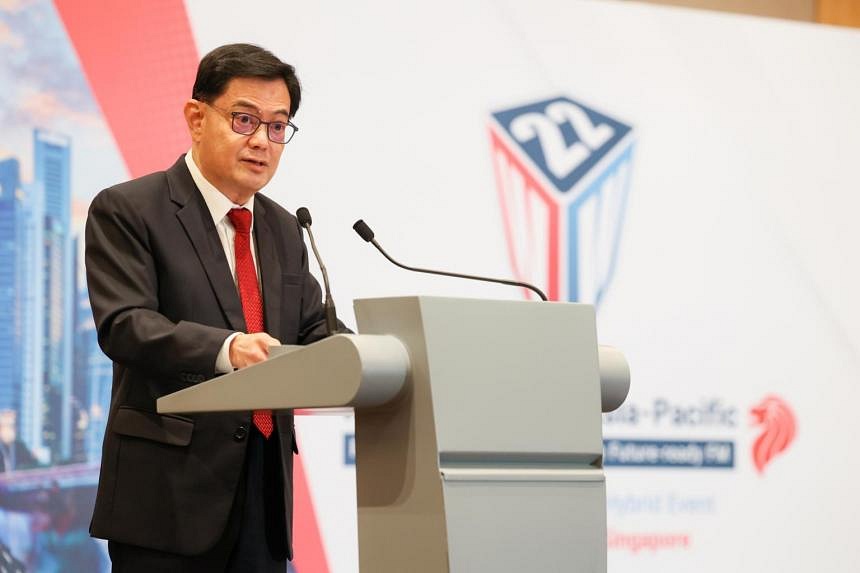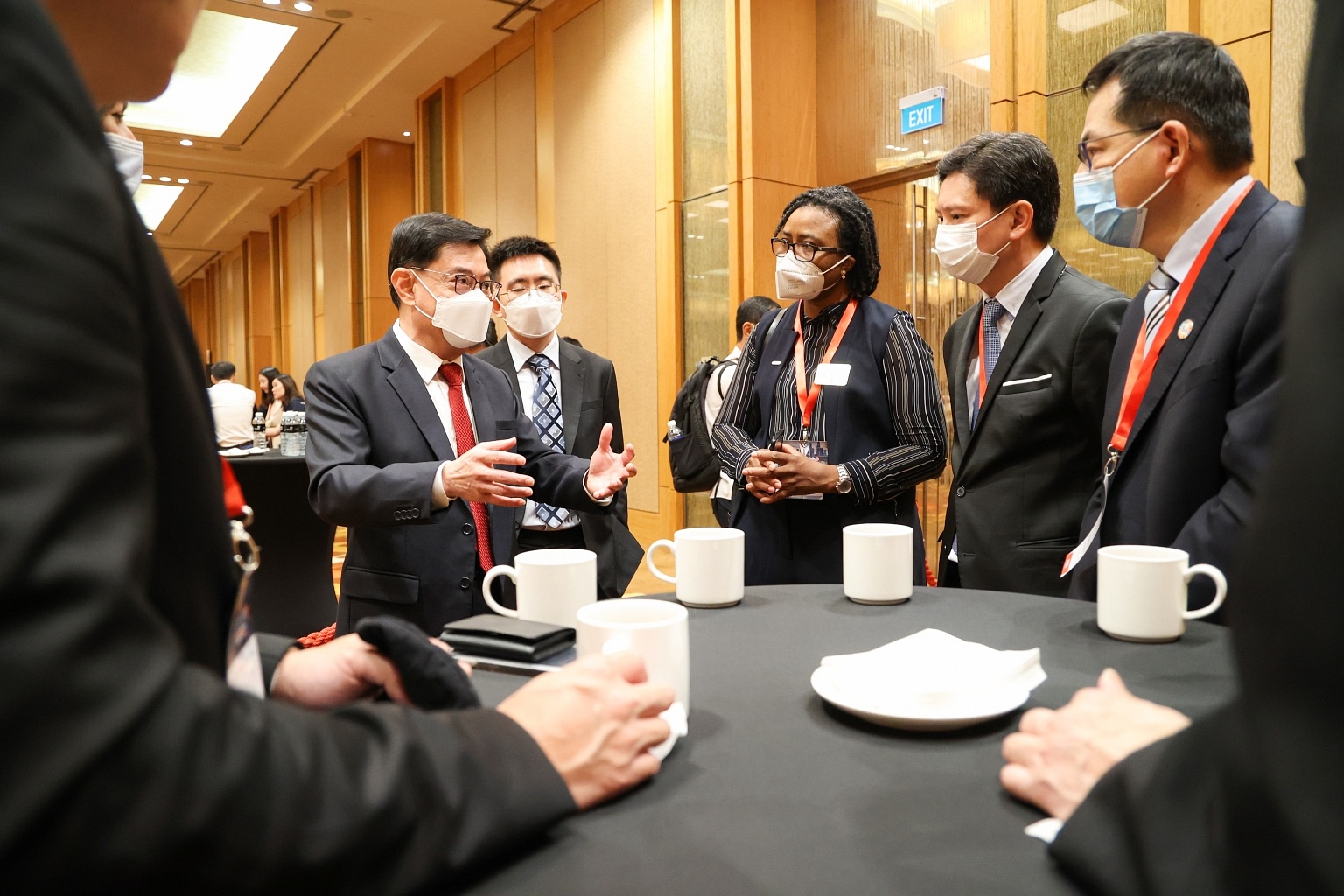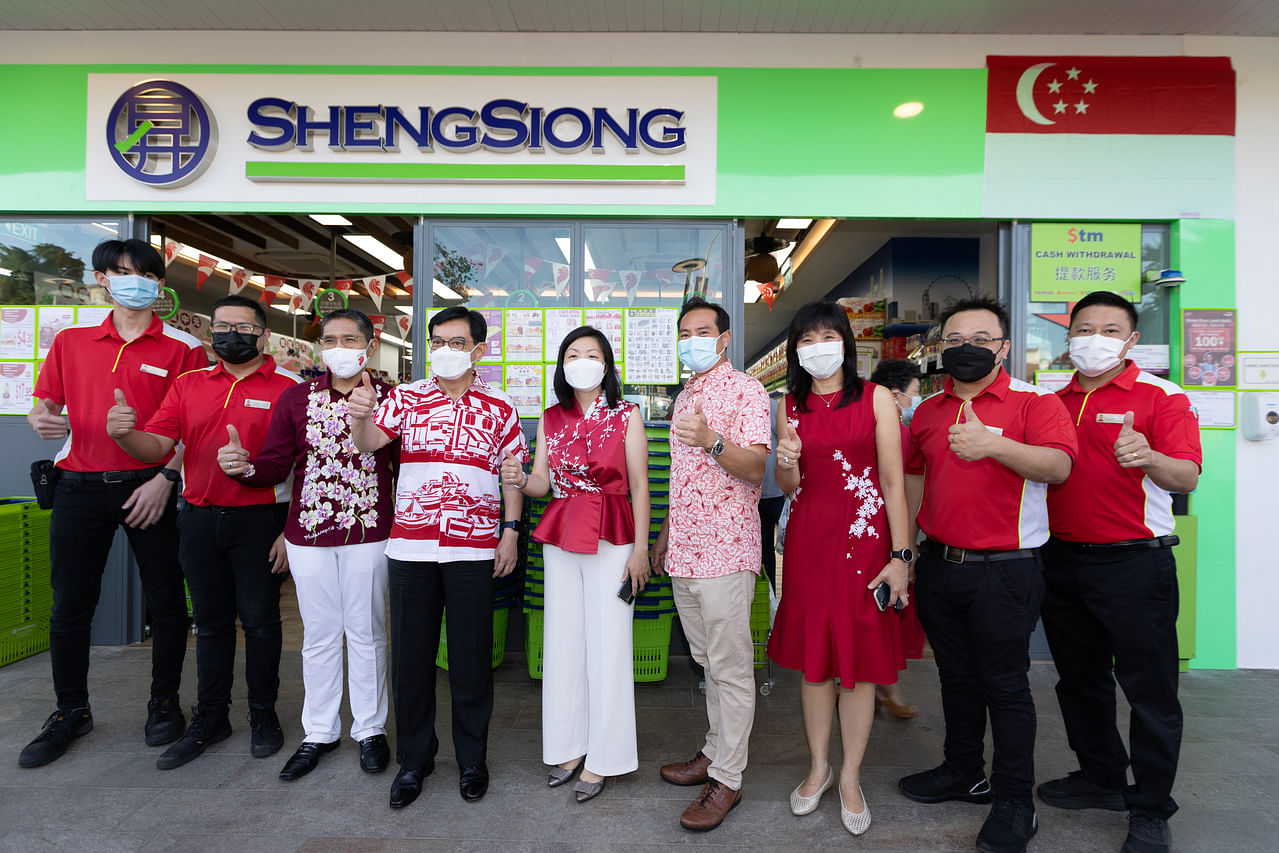from straitstimes.com:
Tech and upskilling crucial to transform facilities management and draw talent
DPM Heng Swee Keat said the facilities management sector has moved into providing spaces that promote occupants' well-being. PHOTO: LIANHE ZAOBAO
Tay Hong Yi
PUBLISHED
JUL 26, 2022, 3:22 PM SGT
FacebookTwitter
SINGAPORE - Sensors and cameras connected to an online portal will allow engineers at facilities management firms to monitor the state of buildings from anywhere in the world, even from their homes.
And drones can conduct inspections of building facades at height - all managed by skilled operators, who may concurrently be trained in security.
Robotics, the Internet of things (IoT) and a broader and deeper skills base form three prongs the facilities management sector reckons it will need to adopt widely to thrive in the post-pandemic environment.
"The challenge in attracting people is that jobs in facilities management are seen as mentally and physically demanding work requiring 24/7 operations," said Mr G. Segar, who chairs the strategy and innovation committee at the Singapore International Facility Management Association (Sifma).
Speaking to The Straits Times at the World Workplace Asia-Pacific industry event on Tuesday (July 26), he added that the change to work routines these three trends entail will help dispel notions that facilities management is a menial, largely blue-collar role.
The reduced headcount needed will alleviate the labour crunch in the sector too, he noted.
Deputy Prime Minister Heng Swee Keat, in a speech to open the event, said the sector has also moved beyond merely maintaining physical fixtures into providing spaces that promote the well-being of occupants.
"Beyond the aesthetics and architecture, a building must also be conducive and responsive to the needs of its occupants, in terms of how it is designed and how it is run," he added.
Although technology could unlock the potential of the industry, Mr Heng cautioned against adopting it in a piecemeal manner.
"One can deploy security and cleaning robots - but how do these robots interact with lifts to move across floors, and with each other?"
He said this fragmentation applies more broadly to how facilities management services are delivered today.
Yet, to thrive and attract good talent, the industry will need to transform to an integrated facilities management model, where a single team delivers the full spectrum of services.
"We can also go further, by aggregating the provision of facilities management services across multiple buildings to achieve scale, or what is commonly known as aggregated facilities management."
Mr Heng said applications will open shortly for a $30 million grant by the Building and Construction Authority to support the adoption of progressive practices that are integrated or aggregated.
The grant was unveiled during the Budget debate in March.
Deputy Prime Minister Heng Swee Keat speaking at the World Workplace Asia-Pacific industry event at Marina Bay Sands. PHOTO: LIANHE ZAOBAO
Mr James Chan, managing director of SMM, Surbana Jurong's facilities management arm, told ST that the firm is looking into applying for the latest grant to introduce more solutions to customers.
Smart technologies that Surbana Jurong already uses include virtual reality headsets to visualise buildings, and numerous sensors to detect the conditions of building fixtures - all of which require cutting-edge talent that it is competing against other sectors for.
But Mr Chan remains upbeat: "The smart solutions that we are now introducing are beginning to attract young minds to join this industry because you can do so many things with the building... (and) one day you can see the real benefit it can bring to a building's performance."
The call to transform the sector follows closely pilots at seven firms spearheaded by the Singapore Business Federation to redesign facilities management jobs and contracts from last March to this May.
According to Ministry of Manpower statistics, 72,600 people worked in the real estate service sector as at March this year.
The two-day World Workplace Asia-Pacific, organised by Sifma and held at Marina Bay Sands, ends on Wednesday. The hybrid event has 250 participants present physically, and more online.














